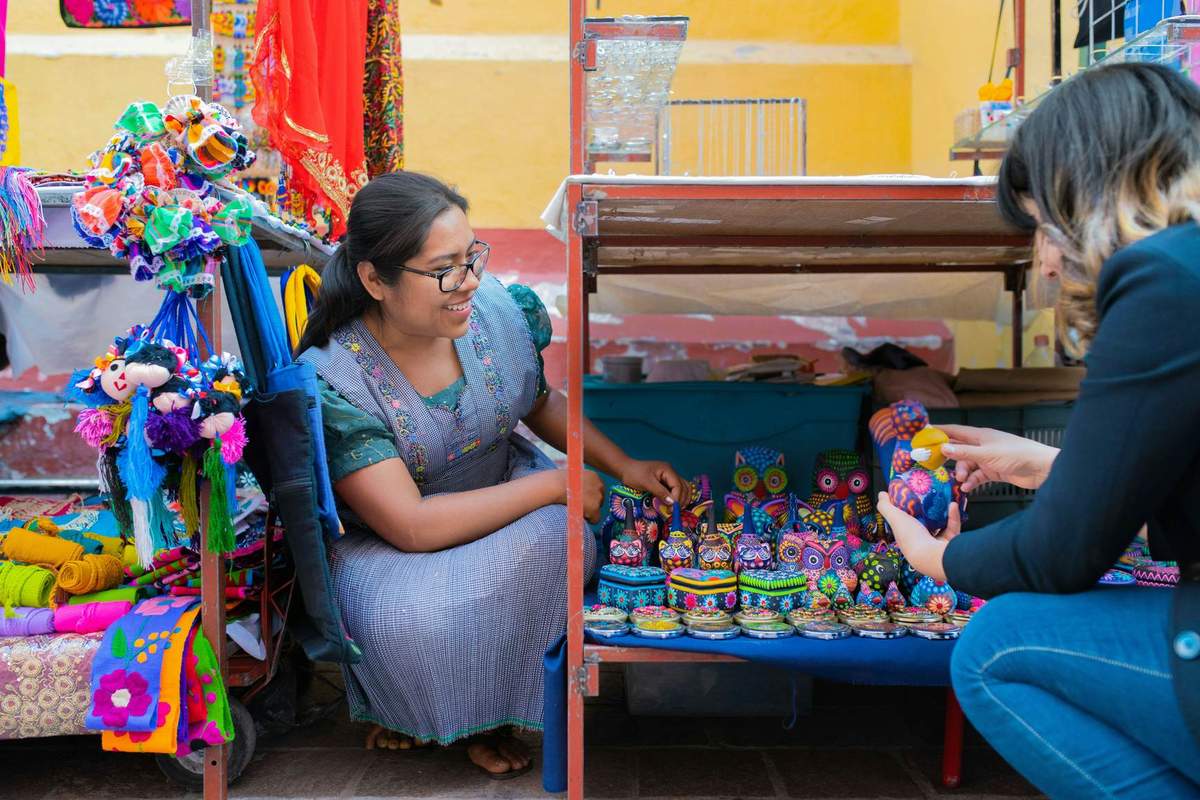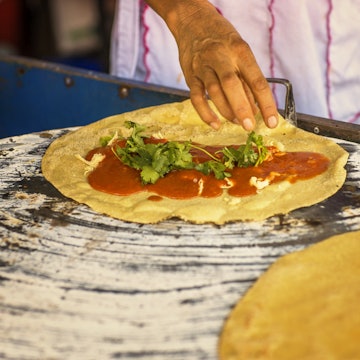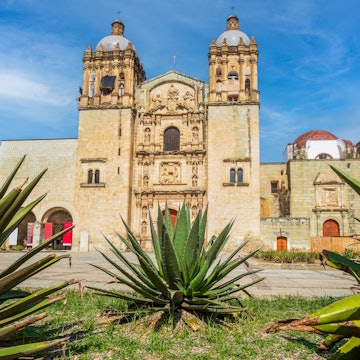

Homemade birria tacos. Brent Hofacker/Shutterstock
It would be no exaggeration to say that Mexicans live for food. From scrumptious street tacos to six-course tasting menus, Mexico has one of the world's most diverse and exciting culinary scenes. Preparing and enjoying meals are important parts of the day, and local ingredients are integral to their preparations.

Enjoy the world’s finest portable feast at a taco stand
Though served across the globe, the taco is at its best in the land of its birth. You’ll find plenty of regional variety as well as tried-and-true classics, like tacos al pastor(with marinated shredded pork), served nearly everywhere.
Where to try it: Order the famous gaonera taco with its fillet of beef, grilled with salt and finished in lime juice, at Mexico City’s El Califa de León. It’s the first taco stand on the planet to earn a Michelin star.
Bite into the Yucatecan delicacy of cochinita pibil
Yucatán's slow-roasted pork (similar to pulled pork) is marinated in orange juice, garlic, cumin and most famously achiote (a spice made from the annatto tree), which gives it a red hue and subtle nutty flavor. It’s often served on tacos with trimmings.
Where to try it: In the vibrant town of Valladolid, Ix Cat Ik is an atmospheric spot to indulge in traditional Maya cooking.
Drizzle fiery (or mild) salsa over one of the world’s best tacos de pescado
Fried or grilled fish tacos are a specialty of oceanside Baja California, and you can adjust the level of heat and complexity based on your own salsa preferences.
Where to try it: If you're craving legit Baja-style fish tacos with finger-lickin' toppings and salsas, Tacos Fenix in Ensenada is as good as it gets.

Taste Mexico's finest birria in Jalisco
The state of Jalisco is the birthplace of birria: beef or mutton stewed in its own juices, with spices and typically found at street stalls and markets.
Where to try it: In Guadalajara’s massive Mercado Libertad (aka Mercado San Juan de Dios), numerous food stalls serve up tapatío (Guadalajaran) favorites including birria.
Order fresh-off-the-boat Huachinango a la Veracruzana
Seafood is king in the Gulf-side state of Veracruz. Difficult to pronounce but easy to love, Huachinango a la Veracruzana is marinated red snapper baked in a flavorful spicy tomato sauce with olives and capers.
Where to try it: In the south of Veracruz City on Boca del Río's malecón (waterfront esplanade), the deservedly popular Mariscos Villa Ricais a Veracruz institution.
Watch the tlayuda makers in action in Oaxaca
It’s a pure delight to watch the skilled street food vendors whipping up tlayudas around town. These massive grilled tortillas are topped with Oaxacan cheese, refried beans and all manner of other delicacies. Even better than witnessing their creation, of course, is eating them when they come piping hot off the grill.
Where to try it: Arrive early to beat the crowds at Tlayudas La Chinita, a wildly popular tlayudas stand in Oaxaca City.
Spoon into the rich complexity of sopa de lima
The Yucatán makes good use of its limas(limes), which are somewhat of a cross between a lemon and lime. They play a subtle role in this tasty traditional soup made of turkey broth, shredded turkey or chicken and fried tortilla strips.
Where to try it: At the Museo de la Gastronomía Yucateca in Mérida, you can enjoy outstanding sopa de lima in a beautiful courtyard adjoining a small culinary museum.

Breathe in the heady aroma of mole poblano
For many Mexicans, mole – a rich, thick sauce prepared with a chili base, nuts, spices and chocolate – defines Mexican cuisine. Traditionally, it smothers a plate of chicken, turkey or pork, though for many, the sauce is the dish.
Where to try it: Make a pilgrimage to Puebla, the birthplace of mole poblano. At El Mural de los Poblanos, the house specialty is five kinds of mole, each a masterclass in culinary refinement.
Vegetarians and vegans
In much of Mexico, vegetariano (vegetarian) is simply not in the eating lexicon. Vegano (vegan) is a long way off. In larger cities such as Mexico City or tourist-oriented San Miguel de Allende, vegan equals hip and you'll find specialty restaurants. In any restaurant, vegetarians can request common ingredients – eggs, rice, cheese and avocado – with staples of corn, beans and chilies. Wrap these in a fresh, warm tortilla and you have yourself a tasty bite. Many traditional Mexican snacks are vegetarian: quesadillas are stuffed with the likes of nopales (cactus leaf), huitlacoche (corn fungus) and zucchini flowers. Arroz a la mexicana (Mexican-style rice) is another tasty option. Be aware that some dishes are prepared using meat broths or animal fats such as manteca(lard).
Food and drink worth trying
Tacos de ojos (cow's eye tacos): Eyeballs from a cow, chopped, steamed and used as a taco filling.
Ahuatle (water-fly eggs): A pre-Hispanic food comprising insect eggs and water-fly larvae.
Escamoles: Ant larvae that resemble rice.
Chapulines: Grasshoppers that are dried, smoked or fried in lime and chili powder.
Pulque: A pre-Hispanic beverage made from sap (aguamiel) of fermented agave. This is one of Mexico's most popular alcoholic drinks, alongside tequila and mezcal, and is the oldest of the three.

A year in food
No matter the season, there’s always great food to be had in Mexico, but it’s worth seeking out unique dishes and ingredients, available only at certain times of year.
Spring (March to May)
In the lead-up to Semana Santa (Easter week), Lent menus incorporate meatless ingredients such as romerito(seepweed, a wild plant) served in a mole sauce.
Summer (June to August)
Huitlacoche, the gray-colored fungus that grows on corn cobs, follows the corn season. The nearest thing to a truffle, its mild taste is the perfect addition to a tortilla.
Autumn (September to October)
Walnuts and pomegranates are in season. They form part of a dish of stuffed chile en nogada, the ingredients of which match the colors of the Mexican flag, perfect for Independence Day (September 16).
Winter (November to February)
Pan de muertos (bread of the dead) and calaveras de azúcar (sugar skulls) hit the streets for Día de Muertos (Day of the Dead), while turkey and bacalao (dried codfish) form the basis of a Mexican Christmas feast.
















